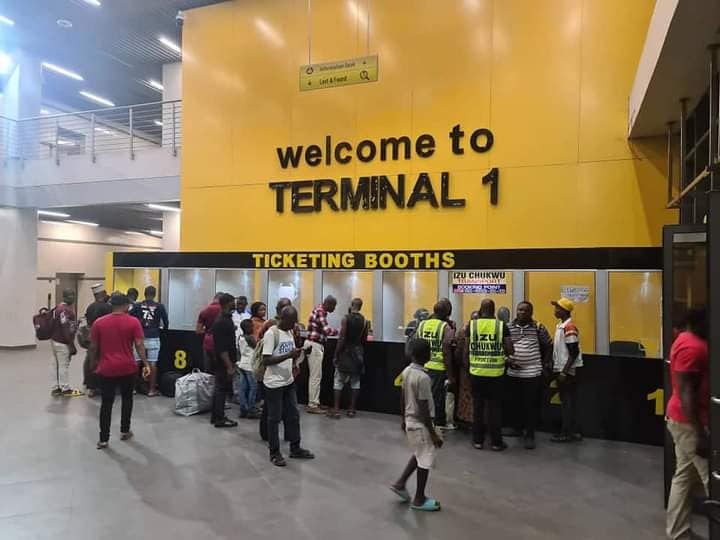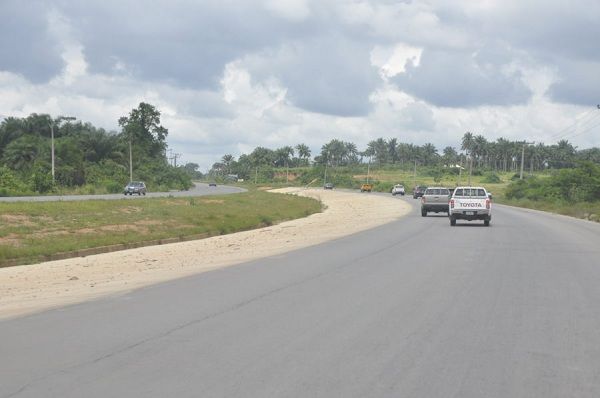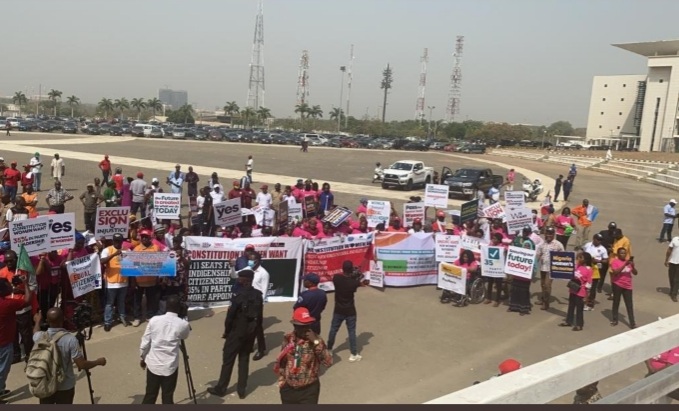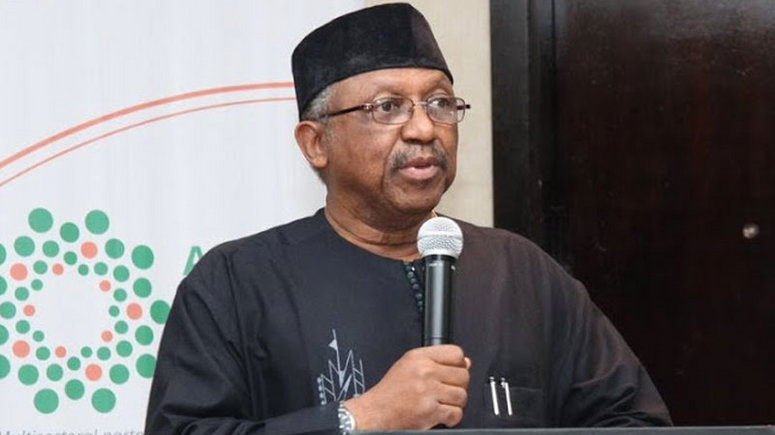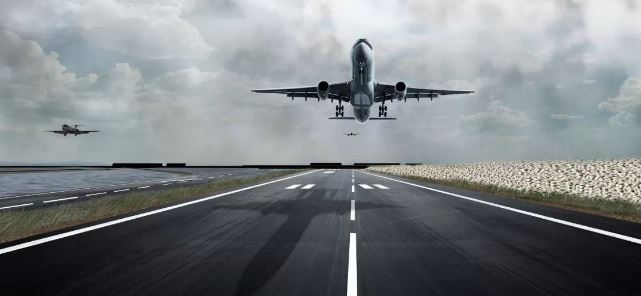The federal government of Nigeria has released updated Coronavirus disease (COVID-19) guidelines for travellers coming into the country.
TheNewsGuru.com (TNG) reports the updated guidelines were released by the presidential steering committee on COVID-19 under the office of the Secretary to the Government.
With the updated guidelines, airlines shall be fined USD 3,500 per traveller for failure to comply with any of the preboarding requirements.
See details of the updated guidelines below:
I. GUIDELINES FOR IN-BOUND PASSENGERS
A. PRE-DEPARTURE FROM COUNTRY OF EXIT:
I. Pre-Boarding:
STEP 1 – Travelers MUST perform a COVID-19 PCR test not more than 2 days (48 hours) before boarding/departure. PCR tests done more than 48 hours before departure are not valid and persons will not be allowed to board. Rapid antigen or antibody test are not acceptable; only PCR tests can be used for this purpose. Test validity commences from the time of sample collection. For Travelers with multiple connections before arrival in Nigeria, the PCR test must be valid within 48 hours of boarding from the first point of departure. Travelers must bring along an electronic or hard copy of their negative COVID19 PCR test for presentation at the departure airport and upon arrival in Nigeria. A record of their vaccination status will also be required on arrival in Nigeria.
STEP 2 – All intending Travelers (including diplomats and children less than 10 years old) MUST register via an online national travel portal (Nigeria International Travel Portal – https://nitp.ncdc.gov.ng) and proceed to fill in the online Health Declaration/ Self-Reporting form located on the portal. They should ensure that the information/contact details provided on the form are correct and verifiable. Travelers must provide valid phone numbers, residential addresses, and functional e-mails where they can be contacted. Travelers must also inform Port Health officials on arrival of any change in their health status since completion of the Health Declaration/Self-Reporting Form.
STEP 3 – After filling the online Health Declaration/Self-Reporting Form, Travelers will be directed to upload their negative COVID-19 PCR test on to the portal. Only children less than 10 years old are exempted from uploading a pre-arrival negative COVID-19 PCR test result. Once this is successfully done, Travelers will proceed to the payment section of the travel portal. Only Children less than 10 years are exempted from payment for the repeat test in Nigeria. Travelers are advised to still bring along an electronic or hard copy of their negative COVID-19 PCR test for presentation at the airport.
STEP 4 – For partially vaccinated and unvaccinated Travelers:
On reaching the payment section of the portal, Travelers will be requested to select their preferred Laboratory/Sample Collection Centre based on where they will be self-isolating for the period of 7-days in Nigeria. A list of accredited private laboratory providers/Sample Collection Centres across the country are available on the payment platform. The next stage is to choose a bank payment gateway and then proceed to pay for the Day 2 (arrival day + 1 day) and Day 7 (arrival day + 6 days) in-country COVID19 PCR tests. Please note that Travelers paying in Naira should use cards issued by a Nigerian bank.
For fully vaccinated Travelers: On reaching the payment section of the portal, Travelers will be requested to select their preferred Laboratory/Sample Collection Centre based on where they will be located 2 days after arrival in the country for the Day 2 test (arrival day + 1 day). A list of accredited private laboratory providers/Sample Collection Centres across the country are available on the payment platform. The next stage is to choose a bank payment gateway and then proceed to pay for the Day 2 in-country COVID-19 PCR test. A record of their vaccination status will also be required on arrival in Nigeria.
STEP 5 – Following successful payment, Travelers should download the Permit to Travel Certificate/ QR Code using the “Get Permit to Travel” button visible at the top right corner of the portal, save and print the form for presentation at the point of boarding. The Permit to Travel Certificate/ QR code will have a “PAID” label if payment is successful and “UNPAID” label if payment had not gone through yet or is unsuccessful. Any passenger with an “UNPAID’ label will not be allowed to travel. A copy of the Permit to Travel Certificate/QR Code will also be sent to the email address provided by the traveller.
II. Boarding
1. Prior to boarding for Nigeria, Travelers MUST present TWO documents at their point of departure to be allowed to board.
a. A negative COVID-19 PCR test done within 2 days (48 hours) of departure. Airlines have been directed not to board Travelers with non-PCR COVID-19 tests (such as antigen or antibody tests), a positive COVID-19 PCR test result, or tests performed beyond 48 hours of boarding; and
b. Permit to Travel Certificate/QR Code – generated from the Nigeria International Travel Portal on completion of a health questionnaire, uploading of a negative COVID-19 PCR result and schedule of PCR tests on Days 2 and 7 on arrival in Nigeria. Travelers failing to show a Permit to Travel Certificate/QR Code will not be allowed to board.
2. Airlines that board Travelers without any of the required documents (a negative COVID-19 PCR test done not more than 48 hours prior to boarding and a Permit to Travel Certificate/QR code, shall be sanctioned as follows:
a. Travelers, who are non-Nigerians, will be refused entry and returned to the point of embarkation at cost to the airline
b. Travelers who are Nigerians or holders of permanent resident permit will be allowed entry but subjected to the procedure outlined in Section D below. In addition, Travelers arriving with forged (fake) COVID-19 PCR results will be escorted to a designated quarantine facility (government approved hotel) for a mandatory quarantine for a period of 7 days at expense to the traveller and will be prosecuted.
c. Airlines shall be fined USD 3,500 per traveller for failure to comply with any of the preboarding requirements.
d. Airlines who consistently fail to comply with the above requirements may be banned from coming to Nigeria.
3. At the time of boarding, Travelers will be required to undergo temperature screening and asked about COVID-19 symptoms. Travelers with temperature >38C and other COVID-19 related signs and symptoms shall not be allowed to board the flight.
B. ON ARRIVAL IN NIGERIA
All Travelers are required to strictly adhere to instructions given by Port Health Services at the arrival terminal. Travelers who fails to adhere to instructions will be sanctioned by relevant security personnel.
All Travelers arriving in Nigeria will be required to:
1. Go through the routine Port Health screening and present electronic or print-out evidence of preboarding COVID-19 PCR test, Permit to Travel Certificate/ QR Code; and Vaccination Certificate (where applicable); and
2. Present their international passports for clearance through the Nigerian Immigration Service System’s Migrants Identification Data Analysis System (MIDAS).
For partially vaccinated and unvaccinated in-bound Travelers:
i. Proceed on mandatory 7 days self-isolation/quarantine in their selected in-country destination address. Travelers are to avoid physical interaction with friends, family members, colleagues, and other members of the public during the period of self-isolation. Travelers should check their emails/text messages regularly for updates regarding the arrangement for their repeat COVID-19 PCR test from the laboratory of their choice. During this period the traveller may be contacted by the COVID-19 Response team to ascertain state of selfisolation, Days 2 & 7 testing appointment and health status
ii. Show-up at the laboratory/sample collection centres on the 2nd and 7th day of arrival. Samples will be taken, and a COVID-19 PCR test done. The selected private laboratory will send a reminder text message, email, or phone call to the traveller a day before the appointment date.
iii. Persons who test negative for COVID-19 after 7 days of self-isolation/quarantine will be allowed to exit self-isolation on receipt of their result.
For fully vaccinated in-bound Travelers:
Show-up at the laboratory/sample collection centres on the 2nd day of arrival. Samples will be taken, and a COVID-19 PCR test done. The selected private laboratory will send a reminder text message, email, or phone call to the traveller a day before the appointment date
C. NOTE:
a. Travelers who fails to show up at the sample collection centres on Days – 2 and 7 of arrival (as applicable) will be sent text reminders and their details forwarded to the State Public Health Department teams and Nigeria Centre for Disease Control (NCDC) for active follow-up.
b. Travelers who fails to show up for testing will have travel restrictions placed on their passports for at least 6 months and will not be able to travel abroad during this period. Non-Nigerian passport holders will have their visas revoked and will be deported from the country.
c. Test results will be provided within 24 hours and the State Public Health Departments & NCDC will be informed; accordingly, if test result is not received after 24hrs, the traveller may contact the private Laboratory for his/her test result.
d. Partially vaccinated or unvaccinated persons who test negative for COVID-19 after 7 days shall end self-isolation on receipt of a negative test result but must continue to self-monitor for symptoms until Day 14; and MUST continue to observe Non-Pharmaceutical Intervention measures (e.g., wearing face mask, maintaining social distance, regular washing of hands and use of alcohol-based hand sanitizers);
e. Fully vaccinated persons who test negative for COVID-19 after the post-arrival Day 2 test MUST continue to observe Non-Pharmaceutical Intervention measures (e.g., wearing face mask, maintaining social distance, regular washing of hands and use of alcohol-based hand sanitizers);
f. Travelers reporting or developing symptoms of COVID-19 on arrival in Nigeria, or during screening will not be allowed to self-isolate and will be placed in institutional quarantine; and
g. Persons who test positive for COVID-19 after the post-arrival Days 2 and 7 test (as applicable) shall be managed based on national guidelines for COVID-19 treatment.
D. PROCEDURE FOR TRAVELERS ARRIVING WITHOUT A VALID PCR RESULT
Any traveller arriving in Nigeria without a valid COVID-19 PCR result (i.e., no COVID-19 PCR test result, a forged COVID-19 PCR test result or COVID-19 antigen or antibody test result) will be subjected to the following measures:
1. If holding foreign passport and non-resident in Nigeria, the traveller will be denied entry into the country and returned to the point of embarkation at cost to the airline.
2. For Nigerians and foreign passport holders with residency rights:
a. Port Health Services will screen the traveller to include a temperature check and review of health questionnaire to establish infectivity risk;
b. Traveller will be escorted by Port Health Services and security personnel to a designated quarantine facility (government approved hotel) for a mandatory quarantine for a period of 7 days at expense to the traveller;
c. Traveller’s passport will be collected by relevant authorities and will not be released to him/her until after successful completion of mandatory quarantine period; and
d. A COVID-19 PCR test will be conducted by a designated private laboratory within 24 hours of arrival at the quarantine facility at expense to the traveller. If the test result is Positive for COVID-19, the traveller will be transferred to an isolation facility and managed according to National treatment guidelines. If test result is negative, passenger will CONTINUE with mandatory isolation at the quarantine facility until a satisfactory Day-7 COVID-19 PCR test is done.
II. GUIDELINES FOR OUTBOUND PASSENGERS
All passengers travelling out of Nigeria are required to provide:
a. Evidence of full COVID-19 vaccination, or
b. A negative COVID-19 PCR test done no longer than 48 hours before departure.
TNG reports the new protocol was signed by Boss Mustapha, Secretary to the Government of the Federation, who is also the Chairman, Presidential Steering Committee on COVID-19.
The protocol comes into effect from 12:01 am on Sunday, 5th December, 2021.

